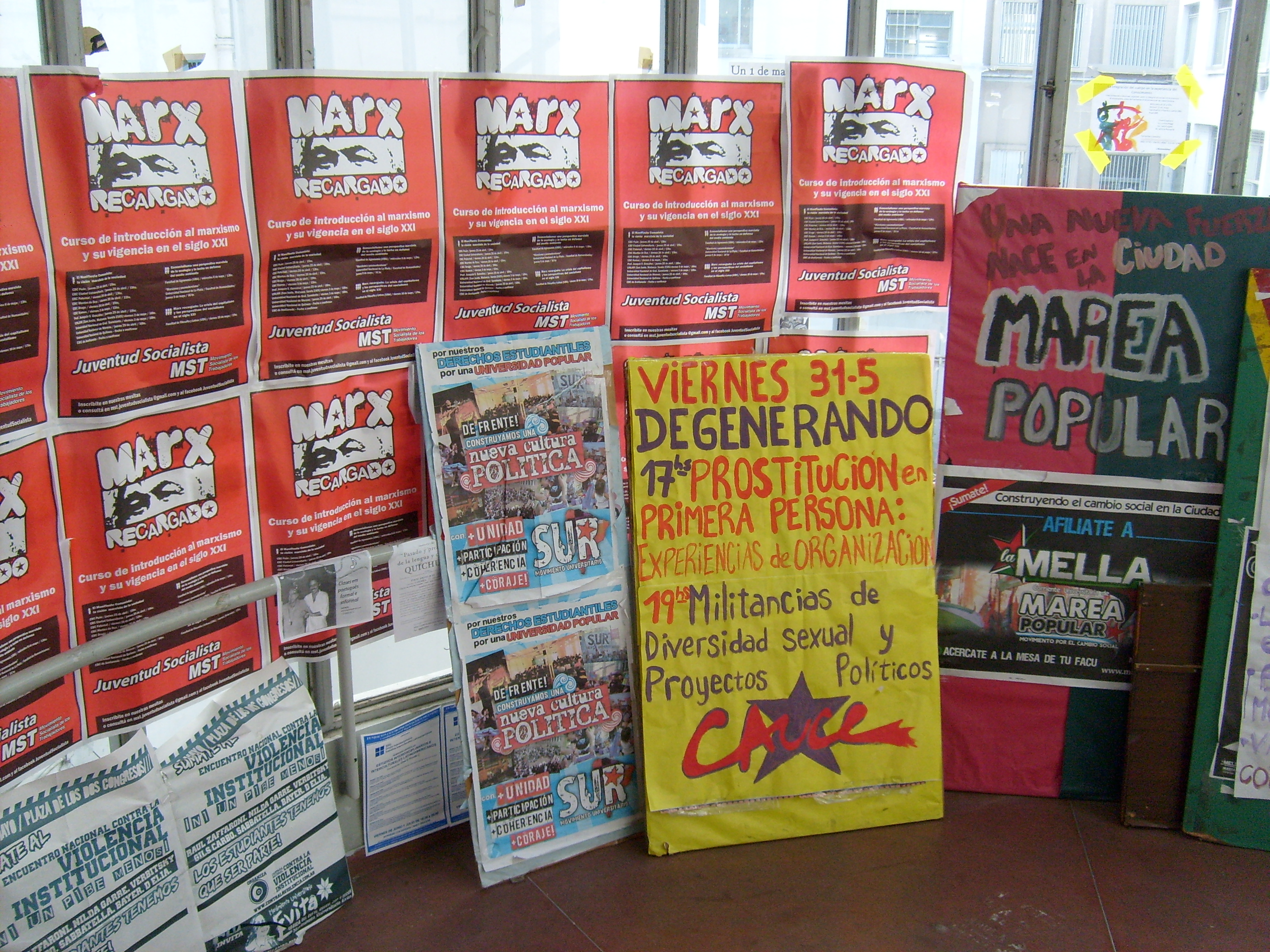
BY MAYA AVERBUCH
During class one morning, something exploded outside the building. The students all turned to the window, hands tensely gripping the desks. “It’s nothing,” said my teacher. “Just continue.” We stared, waiting for some explanation, but for her, nothing was out of the ordinary. It was just a noise bomb, we discovered later, one set off by supporters of a candidate in the upcoming national election. Here in Buenos Aires, street marches and general protests seem to be the norm, especially when the students of the University of Buenos Aires are around.
When the program coordinators told us that the Department of Philosophy and Letters was muy politicizada, we did not realize that every wall would be covered with demands for action. Coming from Yale, where students study in sleepy contentment, I find it admirable that the stairwells, hallways, and classrooms here are filled with colorful signs about petitions for student rights, conferences on socialist models of government, and lectures on topics like “The Marxist Theory of State and Revolution.” The gaps are filled by information about new movies—the most publicized of which is a documentary about the killing of a student leader—and the occasional performance. Even while I sit in class, students knock on the door to ask the professor whether they can distribute flyers to us. Education cannot take place in isolation, they seem to say.

Still, I wonder how much of a difference the students can make. On a light on the second floor hang pieces of paper, on threads of wire, with the names of desaparecidos, people who vanished. I recognize only Raymundo Gleyzer, an Argentinian filmmaker, who disappeared in 1976, during the Dirty War. Are the signs there to remind students of their history? Was the poster down the hall in support of the Syrian revolution simply to show solidarity with those who are fighting against repression?
Perhaps, like everyone else in Argentina, the young adults of the UBA just want to share their opinion on the current state of affairs, no matter who is listening. As my Spanish professor pointed out, they live in a society where every person in the street is ready to give you a long speech on whether president Christina Kirchner is an angel or the devil. In our first week of class, the professor handed us five newspapers and asked us to figure out their audiences, based on the content and design. La Nación, with its New-York-Times-size pages was for coffee tables and the well-off people who owned them, she said. Tiempo Argentino, which was started after Clarín and president Christina Kirchner ended their amicable relationship, was smaller, and could be read on the bus or the Subte, the underground metro. It seemed simple, but wading through contradictory articles in the weeks following was confusing, to say the least.

I never know how far this country is going to go with its political obsession, and I still have little idea about what the constant ruckus is all about. We’ve been instructed to never participate in a protest because they could easily turn violent. But just this week I had to pass by the city center, where striking truck drivers were protesting against the high taxes they had to pay after receiving pay-raises. A few weeks prior, I passed by dozens of policemen lining up in front of cloth-sign-toting protesters. The vendor in the closest kiosk could not tell me what the protest was for, and I did not dare approach one of the shield-wielding officers, but I could not help looking over my shoulder as I walked away. As a tourist in Buenos Aires, catching a glimpse of what was about to happen could only be called absolutely thrilling.
Maya Averbuch ’16 is in Berkeley College. This summer she will be blogging from Argentina. You can contact her at maya.averbuch@yale.edu.
